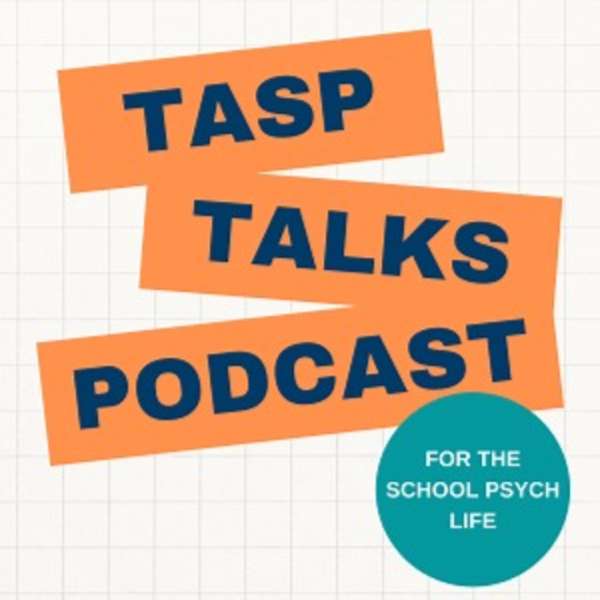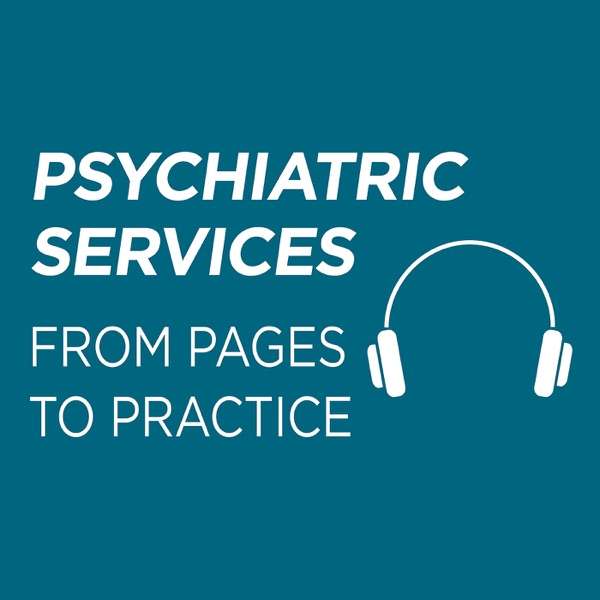New Drug for Alzheimer's Disease
"Don't let yourself be sucked in by all of the publicity and marketing about the new drug for Alzheimer's. Think about whether it's got any benefit, the side effects— which can be very severe, and think about where that money otherwise would go."
Howard Gleckman, Senior Fellow, Consultant, and Editor, TaxVox Blog
________________________________________________
Aducanumab (brand name AduhelmTM) received expedited approval from the Food and Drug Administration (FDA) on June 7, 2021, making it the first Alzheimer's disease drug approved after 18 years.
Since then, the FDA has changed the approval's original wording to suggest that it be used exclusively in select individuals with moderate cognitive decline or early Alzheimer's disease.
Further research is now being done because of the FDA's recent approval of Aduhelm, which sparked worries about its safety, efficacy, and cost.
In today's episode of This Is Getting Old: Moving Towards An Age-Friendly World, we will be talking about The New Drug for Alzheimer's Disease known as Aducanumab (marketed as AduhelmTM). Today, I am joined by Howard Gleckman, a Senior Fellow with the Urban Institute, who will shed some light on the newest drug available for Alzheimer's disease.
Part One Of '
New Drug for Alzheimer's Disease’ Understanding Alzheimer's Disease In A Nutshell
Alzheimer's disease is only one form of dementia; there are many other types, including Vascular disease, Lewy Body disease, Frontotemporal Degeneration (FTD), Parkinson's, and mixed pathologies.
Alzheimer's disease is the most common form – 60-80% of all cases of dementia, but many people do have mixed pathologies, meaning they have more than one form of the disease. This is complicated because confirming what type or types of dementia a person has can only be done by autopsy (I've done a previous podcast on how Alzheimer's disease is diagnosed if you would like to learn more).
You can also learn more about Alzheimer's Facts and Figures (2021), an annual report published by the Alzheimer's Association, to learn more about the different types of dementia and associated characteristics (pages 6 and 7 of the 2021 report).
Signs And Symptoms Of Alzheimer's Disease
Early symptoms of Alzheimer's disease are trouble with your memory – remembering recent conversations, names, or events – or being depressed or apathetic, which means having a general lack of interest or enthusiasm about things you were formerly excited about.
As the disease progresses and moves into the moderate and advanced stages, symptoms include difficulty communicating with words, being disoriented, confused, having poor judgment, behavioral changes, and ultimately, in the end stages, difficulty speaking, walking, and swallowing.
"Not all people with MCI transition into Alzheimer's disease. We don't know or understand the mechanism of why that happens, why some people transition, or some people don't. So then you could be potentially giving a drug to a group of people that would have never progressed to Alzheimer's disease."
Melissa Batchelor, PhD, RN, FNP-BC, FGSA, FAAN The Brain Changes From A Grape To A Raisin With Alzheimer's
In Alzheimer's disease, the brain shrinks – can be seen on a head CT; and two proteins called beta-amyloid and tau develop and somehow become toxic to the brain. The beta-amyloid clumps into plaques, which slowly build up between neurons, and abnormal tau accumulate, eventually forming tangles inside the neurons. As the level of amyloid reaches a tipping point, there is a rapid spread of tau throughout the brain. These plaques and tangles cause the neurons to lose their ability to communicate. The NIH has a great 4-minute video that shows you this process visually.
Drugs For Alzheimer's: What's On The Horizon?
Acetylcholine is a neurotransmitter that also plays an essential role in cognitive function related to memory and paying attention.
Acetylcholinesterase is an enzyme that breaks down acetylcholine – so cholinesterase inhibitors are oral medications that prevent the breakdown of acetylcholine.
Right now, we have at least 3 Acetylcholinesterase inhibitors drugs approved by the FDA that work for a certain period but don't modify the disease course.
Scientists are working on new treatments for Alzheimer's that include anti-amyloid therapy, anti neuroinflammation therapy, Anti-Tau therapy, Neuroprotection, cognitive enhancers, and medications that relieve the behavioral and psychological symptoms often seen in dementia.
Part Two Of 'New Drug for Alzheimer's Disease’ Aducanumab (Brand Name AduhelmTM) The Newly Approved Alzheimer's Drug. Should You Take It? How Aducanumab (AduhelmTM) Works (Or Suppose To Work)?
Aducanumab (Aduhelm) is a monoclonal antibody developed in a facility to bind to the amyloid molecule that causes plaques in Alzheimer's patient's brains. According to most experts, the plaques develop first and harm brain cells, prompting tau tangles to grow within them, eventually killing the cells.
When Aducanumab binds to the plaque, the body's immune system attacks it, mistaking it for a foreign intruder and removing it. The goal is that after the plaques are eliminated, the brain cells would stop dying, and thought, cognition, function, memory, and behavior will improve.
How Aducanumab (AduhelmTM) Is Administered?
The newly approved Aducanumab (AduhelmTM) is a Medicare part B drug. Most of us are familiar with the Part D drugs, which are the pills that we buy in the pharmacy. Part B drugs, on the other hand, are injectables or infusion drugs. That means you generally get this drug at a physician's clinic, an infusion center, or a hospital. Simply put, to take the drug, you need an intravenous infusion every four weeks — forever.
Who Qualifies For Aducanumab (AduhelmTM)?
Physicians may prescribe the medication for treatment in people with early-stage Alzheimer's disease based on the clinical studies that were conducted.
Early-stage Alzheimer's disease patients refer to people with Alzheimer's disease in the early stages of the disease, such as moderate cognitive impairment or mild dementia. People living with early stage Alzheimer's disease may be able to operate normally, or they may need assistance with more complex tasks such as bill payments, grocery shopping, cooking, or managing their checkbook. Those who need help with bathing, grooming, or other basic tasks are not in the early stages of the disease, and the medication is not recommended for them.
However, it's best to note that Alzheimer's disease does not affect anyone with moderate cognitive impairment or mild dementia. There are a variety of additional factors that contribute to these issues. Alzheimer's can only be diagnosed by an amyloid PET scan or lumbar puncture, both of which confirm the presence of Alzheimer's amyloid plaques. Most insurance plans now cover a lumbar puncture; however, an amyloid PET scan (which costs about $5,000) is not.
Furthermore, what makes Alzheimer's disease different from other chronic conditions is the blood-brain barrier. How do you get the drug through that blood-brain barrier that's meant to protect the brain?
"FDA's decision is giving people false hope. It's making them believe that if they scrape together somehow all of this money, there's going to be this magic cure for this disease, and we don't have the evidence that that's true."
Howard Gleckman, Senior Fellow, Consultant, and Editor, TaxVox
How Much Does Aducanumab (Aduhelm) Cost?
Howard Gleckman explained that Aducanumab is estimated to cost $56,000 per year by Biogen, the company that manufactures it. It is unknown if this medicine will be covered by Medicaid, Medicare, or private insurance. Biogen said they're working on a deal with the Veterans Health Administration (VA) to pay for this drug for veterans receiving VA treatment. However, VA said they would not include it in their formulary, and private insurance companies are all over the place.
Similarly, the Center for Medicare and Medicaid Services (CMS) is still not sure if they will cover the drug. And if they do, AduhelmTM would be covered by Medicare Part B (because it's an infusion) rather than Medicare Part D (prescription drug coverage). And even if they do decide to cover the medication, Medicare only pays 80% of Part B costs and 20% is out-of-pocket for consumers. Annual out-of-pocket costs would be over $11,000 -these costs make the drug out of reach for many Americans.
Howard asks that when considering the cost being $56 000 a year per person, what will it cost Medicare annually? When the drug has not been found to be effective, we could be investing in the Home and Community-Based Services (HCBS) that we have evidence do work.
The bottom line is that geriatricians and healthcare providers are left to explain to patients why they are not eligible to take this medication, and why it's considered a "scam" by scientists and healthcare professionals alike.
But, Does Aducanumab (AduhelmTM) Work?
Briefly stated, there were two major clinical studies to determine the drug's efficacy, side effects, and overall safety.
One of the trials returned positive, indicating that the medication helped to halt the loss in cognition, memory, and functioning that is so common in Alzheimer's disease.
The results of the other extensive research were negative. The findings indicate that there's no evidence to prove whether the drug is working or not.
Another element to decide is that the perceived upside — if the medication performs as much as it did in the successful trial — is next to nothing.
The Role Played By The Food and Drug Administration (FDA)
The FDA was established in 1906 to protect consumers from unsafe medications and unsafe substances that falsely claimed efficacy for some treatment without proof.
Long-standing FDA Approval Process for all drugs built on how clinical trials are conducted to move medication from the laboratory into use by human beings. With that, FDA approval can take 12-15 years at an average cost of $2.6 billion to a manufacturer. Biogen spent about 18 billion dollars to develop this drug.
Moreover, in 14 clinical trials, after significantly reducing beta-amyloid, this drug did not result in a significant change in Mini-Mental State Examination scores. In other words, there has been no convincing clinical evidence that clearing beta-amyloid from the brain results in any benefit to the patient.
The FDA ignored the recommendation of an Independent Data Monitoring Committee that found zero evidence that this drug slowed down AD progression; in fact, patients given Aducanumab in the trials did worse than patients who received the placebo. The Independent Data Monitoring Committee recommended that the Phase III trial of Aducanumab be terminated.
These actions made by the FDA in ignoring the recommendations of the Expert Alzheimer's Disease Panel and approving the drug for use caused three members to quit and raised several controversies.
About Howard Gleckman, Senior Fellow, Consultant and Editor, TaxVox Blog Howard Gleckman is a senior fellow in the Urban-Brookings Tax Policy Center at the Urban Institute. He is also affiliated with Urban's Program on Retirement Policy and is the author of the book Caring for Our Parents. He also writes two regular columns for Forbes.com, on tax policy and eldercare.
Connect with Howard by checking out his Personal Blog
About Melissa Batchelor, PhD, RN, FNP-BC, FGSA, FAAN:
I earned my Bachelor of Science in Nursing ('96) and Master of Science in Nursing ('00) as a Family Nurse Practitioner (FNP) from the University of North Carolina Wilmington (UNCW) School of Nursing (SON). I genuinely enjoy working with the complex medical needs of older adults. I worked full-time for five years as an FNP in geriatric primary care across many long-term care settings (skilled nursing homes, assisted living, home, and office visits), then transitioned into academic nursing in 2005, joining the faculty at UNCW SON lecturer. I obtained my Ph.D. in Nursing and a post-master's Certificate in Nursing Education from the Medical University of South Carolina College of Nursing ('11). I then joined the faculty at Duke University School of Nursing as an Assistant Professor. My family moved to northern Virginia in 2015 and led to me joining the George Washington University (GW) School of Nursing faculty in 2018 as a (tenured) Associate Professor. I am also the Director of the GW Center for Aging, Health, and Humanities. Please find out more about her work at https://melissabphd.com/.

 Our TOPPODCAST Picks
Our TOPPODCAST Picks  Stay Connected
Stay Connected







